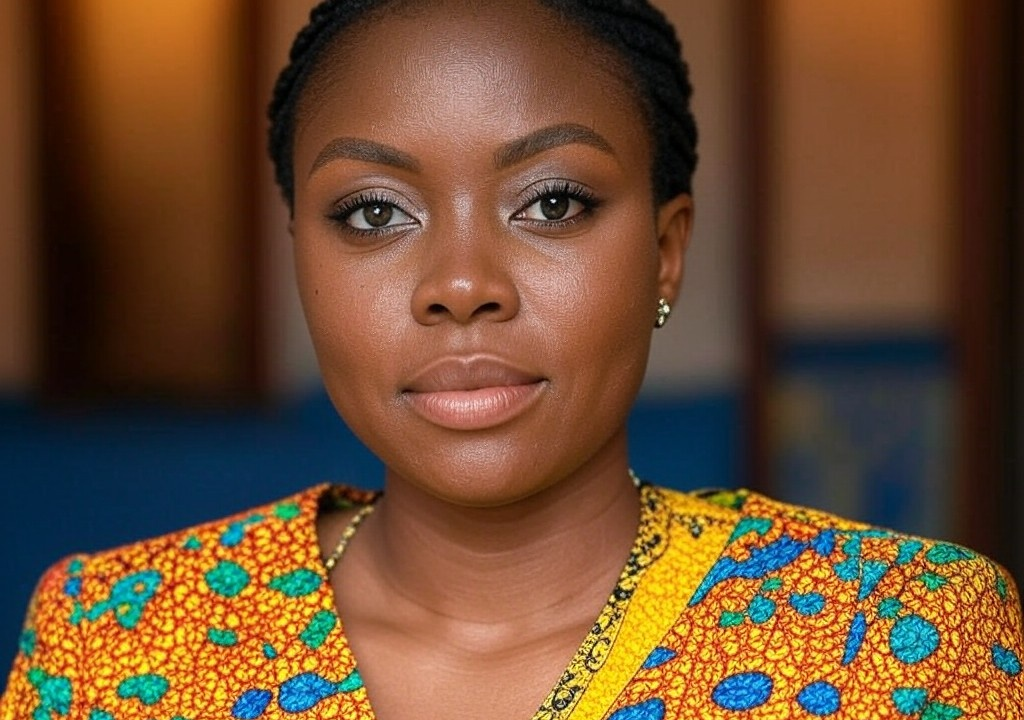The hardest piece I’ve ever written? Oh, that one’s easy to remember—because like any good Nigerian, I had to wrestle with family, tradition, and my sense of self all at once while writing it. Let me set the scene: It was 3 a.m., I was sitting at my desk in a London flat that was colder than I liked to admit, trying to decide if I should just toss the whole thing out. And what was the topic? A piece about love, actually. Specifically, navigating love when your heart speaks differently from the traditions you’ve grown up with. Tough stuff.
Now, let me warn you: this isn’t your average “I overcame writer’s block, and now I’m a literary Beyoncé” story. This is messier, realer, more personal. Let me bring you along with me for a crash course in how I nearly cried into a bowl of jollof rice while writing about modern romance and cultural expectations.
Chapter 1: The Call Is Coming From Inside the House
If you grew up with a Nigerian family like mine, you know there’s no such thing as a small family meeting. Personal decisions—love, work, what soup you’ll cook for Sunday—are rarely just about you. And writing about anything remotely controversial? Ha! Good luck explaining that to your Auntie Nkechi, who sits at the head of the WhatsApp family group.
When my editor first pitched the piece to me, my immediate thought was: “Harriet, stay away. Write something safer, like ‘10 Red Flags to Avoid on a Date’ or ‘Why Bridesmaids Are Really Just Hostages in Peach Dresses.’” But love and tradition had been swirling in my mind ever since moving to London for grad school. I’d seen so many of my friends caught in the same push-pull I was feeling—trying to blend the rhythms of home with the appeal of new, shinier, sometimes colder cultures. Someone had to write about it.
The problem was, how could I put something so personal into words without feeling like I was betraying those who raised me? The weight of my family, my ancestors even, sat on my keyboard every time I tried to type. It was like fighting a soft war where your “opponent” is the very culture that gave you roots.
Chapter 2: Love, But Make It African
I started drafting the piece by diving into my memories. Specifically, my parents’ love story—a quintessential Nigerian tale. My father spotted my mother in a crowd at a friend’s wedding, supposedly cancelled his date with someone else (the scandal!), and made it his life mission to get her attention. He succeeded, but only after showing up with his uncle to formally declare his intentions. In a world where romantic comedies increasingly start with a cheeky DM, their story felt like something from another galaxy.
But as I wrote, a question kept nagging at me: Could such stories coexist with the new, freer styles of love I’d encountered while living abroad? The kind of love where you pick who you want, how you want, without worrying about whether they belong to the correct village or understand the nuances of egusi soup versus ogbono?
This tension hit home during a dinner in Lagos, not long after I'd finished my Master’s. My cousin, Chinenye, introduced her Spanish boyfriend to the family, and it was... let’s just say… an event. There were curious glances, hushed whispers, and the occasional “Does he eat spicy food?” comment that barely tried to mask deeper questions about whether he’d ever be able to fit into our culture. For me, this dinner encapsulated the push-pull of navigating nontraditional love: the pride of sharing your culture with someone new, tempered by the subtle (sometimes not-so-subtle) resistance from those who’d prefer you stick to what they know.
I wrote about this in the piece, and let me tell you, I clenched my teeth while typing. How could I address this without sounding like I was airing out family dynamics better left at the dinner table? But here’s the truth: These stories aren’t just ours to keep silent about—they’re universal.
Chapter 3: A Love That Feels Like You
One moment from writing that article will forever be stamped on my brain: searching for the best way to ask readers, “What kind of love feels like you?” And when I finally wrote it down—at 4 a.m., while nodding off over cold plantain chips—it hit me that I hadn’t even answered this question for myself. Too often, we let other people’s ideas of love dictate how we show up in relationships. We’re so desperate not to disappoint (insert your mother, your church auntie, or, let’s be real, society at large here), we forget the real question is whether the person you’re with makes YOU feel alive.
For me, rediscovering love as something that grows at your pace—not rushed, not shoehorned into old traditions—was revolutionary. I’m not saying I tossed all that I grew up with aside (please, Auntie Nkechi might never recover). But I started picking what to carry forward and what to leave behind. And if you’re feeling that friction of family versus freedom, let me tell you this: You’re not alone. It’s okay to mix and match. Some days you’ll eat jollof with a side of perspective. Other days, you’ll just want jollof. Both are valid.
Chapter 4: Lessons Learned
Here’s the thing about the hardest piece you ever write—it teaches you. It strips down all the illusions you had about what you’re “supposed” to say and gets to the heart of what matters to you. This article forced me to confront my own biases, my own fears, and (per usual) the weight of that thunderous, slightly intimidating WhatsApp family group. But I learned these lessons along the way:
- Your story matters. If you live caught between two worlds, you’re not alone—and your experiences will resonate more than you know. Write them. Share them. Own them.
- Tradition is not the enemy. Culture is a foundation, not a cage. The beauty in love lies in blending where you come from with where you're going.
- Be vulnerable. Some of the most touching feedback I received came from readers who saw parts of their own journeys reflected in mine. If I hadn’t taken the leap to be honest, that connection would never have happened.
Chapter 5: The Article Lives On
The piece was published, and to my surprise, the world didn’t end. My WhatsApp aunties didn’t disown me (though there were a few cryptic “Eh! We’ll talk later” messages). In fact, the response was overwhelmingly positive. Readers from Nigeria, South Africa, Senegal—even the U.K.—reached out to share their personal stories about juggling love and cultural expectation. Suddenly, the thing I’d feared writing became a bridge. A reminder that so many of us are just trying to love in a way that feels like home.
So, if you’re staring at an emotional essay or navigating your own questions about love and tradition, know this: The hardest things we write, say, or do are often the most necessary. And if it takes a plate of cold plantain chips and a sleepless night to get there, so be it. Trust me—it’s worth every bite.




















